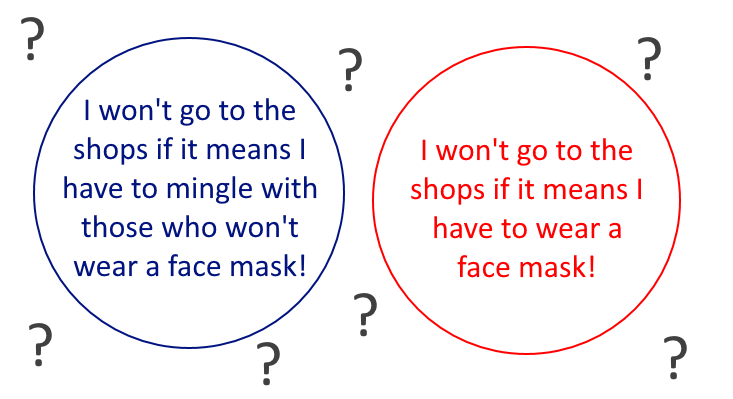The paradox at the heart of the coronavirus crisis in England:
The people who rushed down the pubs, and are happily shopping now, will be the exact same people who don't care much if at all about social distancing when they pass you in a shop or on the street.
The people who rushed down the pubs, and are happily shopping now, will be the exact same people who don't care much if at all about social distancing when they pass you in a shop or on the street.
But because they're out there being "bad actors", everyone else is even less likely to feel safe enough to go out and engage with the world.
In other words, the "early adopters" of the return to normality are urinating in the pool, so nobody else dares take a swim.
In other words, the "early adopters" of the return to normality are urinating in the pool, so nobody else dares take a swim.
Except it's worse than that, because essential shops are stopping or scaling back their provisions for those most at risk, now that the UK Government said it's ok to wind down shielding. And supermarkets are getting rid of one-way systems etc.
So, very broadly speaking...
A) If you were the kind of person who fretted all through lockdown, raced to the beach, the pub, and to meet mates, life *appears* to have improved.
B) If you're the reticent sensible sort, life is getting more dangerous and scary.
A) If you were the kind of person who fretted all through lockdown, raced to the beach, the pub, and to meet mates, life *appears* to have improved.
B) If you're the reticent sensible sort, life is getting more dangerous and scary.
Question is, can businesses survive on the custom of A) but not B)?
And which of A) or B) can collectively muster the most spending power?
Because that's going to dictate, to a large extent, who on the high street survives.
And which of A) or B) can collectively muster the most spending power?
Because that's going to dictate, to a large extent, who on the high street survives.

 Read on Twitter
Read on Twitter


